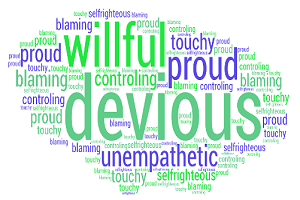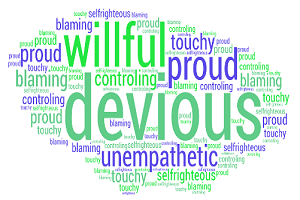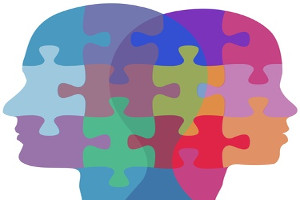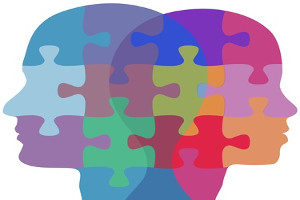Is your partner narcissistic?

 Do you feel as though you are living on an emotional roller coaster, one minute high and the next minute dropping at speed to the lowest point? Are you wondering how your fairy tale relationship has gone so horribly wrong? Your mind is so tangled up in a mesh of emotions and feelings that you have no idea how to begin to unravel it all. This person who once idolised you, now belittles and devalues you, putting you down at every opportunity. You constantly feel guilty, even though you have done nothing wrong.
Do you feel as though you are living on an emotional roller coaster, one minute high and the next minute dropping at speed to the lowest point? Are you wondering how your fairy tale relationship has gone so horribly wrong? Your mind is so tangled up in a mesh of emotions and feelings that you have no idea how to begin to unravel it all. This person who once idolised you, now belittles and devalues you, putting you down at every opportunity. You constantly feel guilty, even though you have done nothing wrong.
If this sounds familiar, it may be that you are living with someone with a narcissist personality.
How your relationship may have progressed:
To begin with your relationship may have seemed perfect. Everyone may have said you were the perfect couple, how charming and charismatic your partner was. He adored you, couldn’t do enough for you, possibly showered you with gifts. But slowly, somewhere along the line, once he had secured your love, things started to change, he started to change, but by this point you are in too deep, confused and unable to understand what has happened.
(To keep things simple I have used the term ‘he’ for the person exhibiting these traits. However, it can also be in relation to the woman in heterosexual relationships as well as same sex, gay / lesbian relationships.)
Some of the things you may be saying to yourself are:
- I feel as though I am living with two different people.
- It must be me, there must be something wrong with me.
- Why does he say cruel, hurtful things to me and then an hour or so later act as though nothing is wrong?
- My head feels so messed up.
- What mood will he be in today? I can’t cope with this anxiety, I feel so on edge.
- I feel intimidated by him.
- Everything is my fault, I can’t do anything right.
- Why does he never ask about me, it’s all about him.
- I feel sorry for him, he can’t help it / he doesn’t mean it.
- Why is he ignoring my calls / texts?
- He needs me.
- Maybe he’ll change.
- I feel so stupid.
The above is just a short list of some of the thoughts and feelings you may be experiencing.
Intimidation and fear are not always present with this type of behaviour. Some types may be more subtle. Quietly manipulative, insulting, playing mind games. He may swing from being loving one minute, being the most caring, loving partner, to being cruel and abusive the next. This is what feeds your anxiety, your stomach constantly churning, walking on egg shells because you can’t figure out if he means it or not. You constantly question….’Is it me?’……..‘Is there something I have done?’ ‘I just can’t seem to make him happy!’
It is important to know that it is NOT you! This is exactly what your partner is wanting you to believe. If you attempt to challenge your partner you will no doubt be faced with even stronger, abusive behaviour. This is because underneath the arrogant, confident exterior lies a fragile ego that requires constant validation and attention. They will not let anything or anyone rattle the pedestal they have put themselves on as to do so would highlight their weakness. It will always be about him. They are incapable of empathy, or reciprocating love. Despite the initial act of being overly caring and compassionate sooner or later the mask drops and is replaced by a wolf in sheep’s clothing!
Research shows us that narcissism is on the rise. I am seeing more and more people in relationships with men who exhibit narcissistic personality traits. It is a sad fact, but important to understand that if you are involved in such a relationship it is highly unlikely that your partner will ever change.
If you feel scared, you just can’t think straight any more, just don’t know what to believe anymore, then please seek some support. Or if you are simply unsure. You know that something isn’t quite right but you can’t quite put your finger on it. Talk to a family member, a friend or a professional. Talking to someone may help you to recognise that you are in a toxic relationship where the only winner is your partner. It may help you to see that you have choices. You are not stuck, trapped, there is another way. It may help to empower you with the strength and resilience to take back control of your life and to act on those choices. It just may help you to feel that you are not alone……that someone understands!
Fiona Foster Tel: 07874 223422 fionafoster02@gmail.com

 What is Mental Health?
What is Mental Health?
 Reasons to volunteer
Reasons to volunteer
 An Introduction to Mindfulness
An Introduction to Mindfulness
 Thoughts and anxiety
Thoughts and anxiety